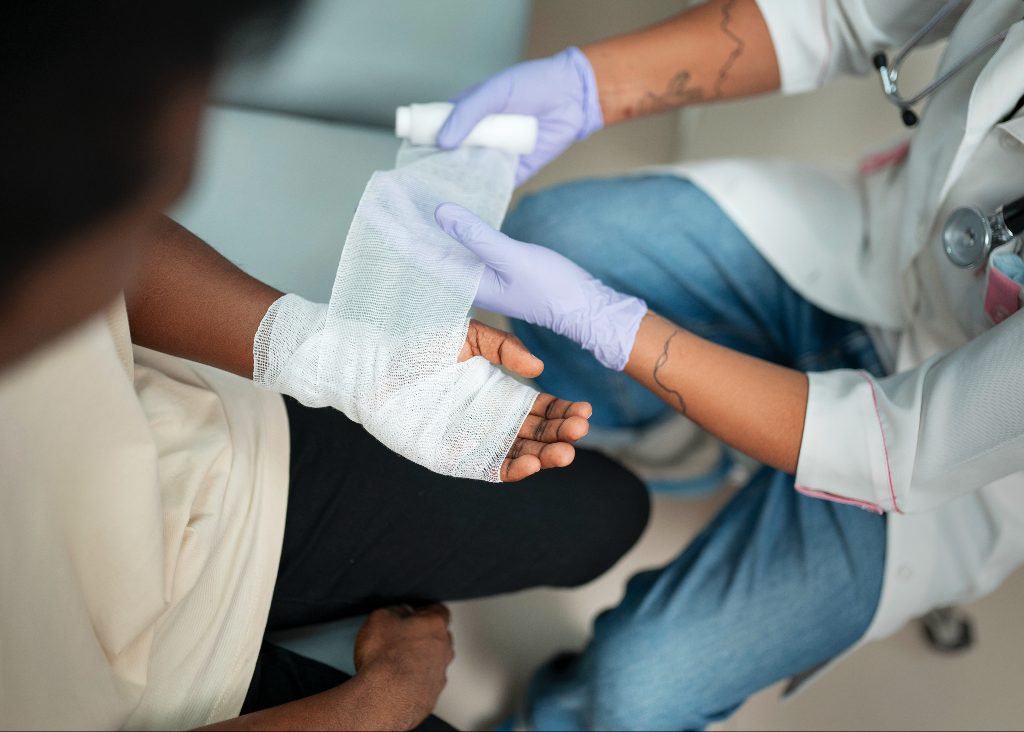Do you know that you can go to different specialists for your orthopedic problems? If you are referred to an orthopedic clinic, you may see either an orthopedic doctor or an orthopedic surgeon. To many people, this sounds like it’s the same thing. After all, can’t doctors perform surgery? The difference between an orthopedist vs orthopedic surgeon is that orthopedic doctors typically handle nonsurgical treatments like therapy, medications, and injections, while orthopedic surgeons are trained to perform operations when those options aren’t enough. Knowing this helps you choose the right provider for your situation.
What Is Orthopedic Medicine?
Before we talk about the individual roles, we should understand what orthopedics means in the first place. Orthopedics is a branch of medicine that is dedicated to the musculoskeletal system, which includes muscles, bones, joints, ligaments, and tendons. Because of these varying body parts and their importance, anyone working in orthopedics often works with other specialists like pain management experts and physical therapists to ensure the right treatment is being provided.
Orthopedics deals with conditions that are present from birth, that develop over time, or that appear as a result of trauma or injury.
Common conditions that fall under orthopedic care include:
- Arthritis
- Bone fractures or breaks
- Injuries to the soft tissue, like whiplash
- Back or neck pain
- Shoulder pain or conditions such as bursitis
- Carpal tunnel syndrome
- Sports injuries, like tendinitis, meniscus tears, and ACL tears
- Clubfoot, scoliosis, and other congenital conditions
What Does an Orthopedic Doctor Do?
The job of an orthopedic doctor is to meet with patients who have concerns surrounding their musculoskeletal system to discuss and diagnose these issues. In addition to identifying these conditions, orthopedic doctors will be able to provide helpful tools like braces, splints, and casts, or reset broken bones. These doctors may refer you for additional care based on their knowledge, including physical therapy. If they decide you are a candidate for surgery, your orthopedic doctor can provide counseling both before and after a procedure, assisting with follow-up and the recovery process. Importantly, orthopedic doctors do not perform any surgical procedures.
What Does an Orthopedic Surgeon Do?
An orthopedic surgeon can perform all of the same tasks that an orthopedic doctor can, as well as surgery. Some surgeons will perform all of the care, including diagnosis and follow-up treatment, but many focus only on surgical procedures and are referred by orthopedic doctors. An orthopedic surgeon is generally able to perform surgery on the hips, knees, feet, ankles, shoulders, elbows, or spine, depending on the diagnosis and necessary treatment. Typically, a surgeon will be brought in for serious conditions, including ruptured discs, chronic back pain, spinal stenosis, bone tumors, carpal tunnel syndrome, or arthritis.
Some common surgeries performed by orthopedic surgeons include:
- Soft tissue repair surgery- repairs tendons or ligaments with significant damage
- Osteotomy- cutting or repositioning of bones to correct a deformity
- Joint replacement- partial or total replacement of a damaged joint with an artificial one
- Internal fixation- using plates, screws, or pins to hold broken pieces of bone together
- Fusion- using rods or other internal devices to fuse bones together
- Arthroscopy- tiny incisions that are made so that a camera can view the inside of a joint
Are All Orthopedic Doctors Surgeons?
No, not all orthopedic doctors are surgeons. An orthopedic doctor (or orthopedist) can diagnose and treat bone, joint, and muscle conditions using non-surgical methods like medication, physical therapy, and injections. An orthopedic surgeon has the additional training to perform surgery when needed.
Should I See an Orthopedic Doctor or Orthopedic Surgeon?
Many orthopedic clinics will include both, so this can depend on your original assessment and how your recovery plays out. However, in some cases, it may be clear that you need an orthopedic surgeon. Chronic pain that has not been helped can often lead you to an orthopedic surgeon. Some people prefer to go straight to a surgeon to relieve pain quickly.
However, most people will begin with an orthopedic doctor and try to evaluate non-invasive options first. Don’t forget to ask your doctor questions to find out what will work better for you. If you experience chronic pain caused by arthritis or other conditions, you may want to avoid surgery where possible. An orthopedic doctor will explore preventative measures that can reduce pain or prevent worsening, often working with pain management experts and physical therapists to achieve optimal results. If you do need surgery, they will be able to refer you to a surgeon and work closely with them to create a treatment plan.
Get The Right Orthopedic Care, All in One Place
At AICA Orthopedics, we offer a broad range of specialties through our comprehensive orthopedic clinic. Our doctors and surgeons work side by side with on-site imaging and pain management experts to design personalized treatment plans that support your health and your case. With same-day appointments and 24/7 availability, you never have to wait to start your recovery.
Call (404) 855-2141 now to schedule your appointment.





